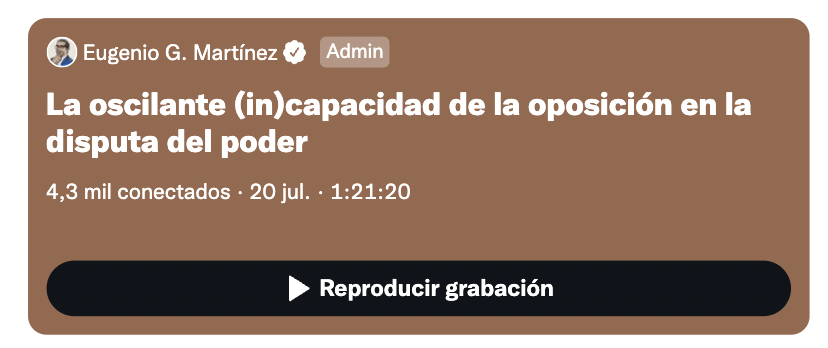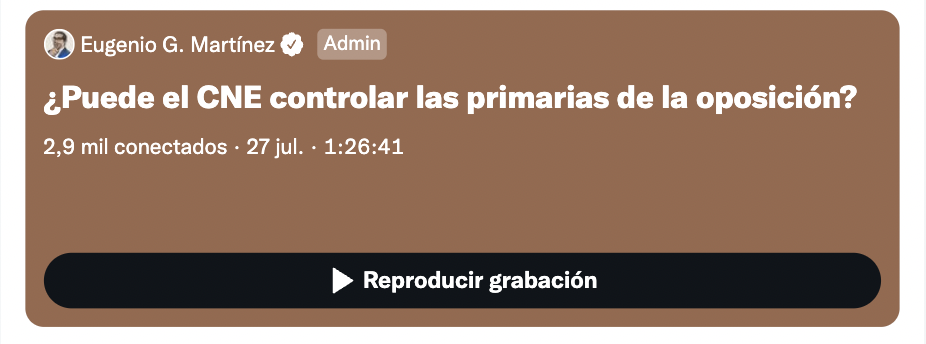The Venezuelan opposition will close 2021 more fragile and divided because of the showdown over the constitutional continuity of Juan Guaidó’s Interim Administration and the 2015-elected National Assembly. However, while the different opposition factors fail to reach political agreements to unanimously support the reform of the Statute Governing the Transition (establishing the powers of Juan Guaidó as interim president) and the reform of the Venezuelan Liberation Fund (defining the access to overseas assets), chavistas are focused on changing and defining the main point to resume talks in Mexico: the reinstatement of the Supreme Court of Justice (TSJ).
The dispute between the parties that are in the so-called G4 (Justice First, Democratic Action, A New Era, and Popular Will) leads to discussions on the chavistas’ breakthroughs to restate the Supreme Court of Justice with the political factors that participated in the parliamentary elections held in 2020. A similar situation occurred with the reform of the electoral system implemented in the last parliamentary elections. Only the political sectors that are not aligned with the Interim Administration participated in the debate, leading to unconstitutional changes of the voting system and seat allotment that cannot be explained in election terms, especially of the amount of component deputies of parliament.
The reform of the Supreme Court of Justice was the main point of the agenda in Mexico. However, none of the points addressed in this encounter takes into consideration the reform of the high court to be implemented by Nicolás Maduro’s administration. Although the possible balance of powers between Maduro’s government and the representatives of Venezuela’s Unity Platform was addressed in Mexico, there is no such choice at the moment. In the aforementioned talks the possible political balance was addressed as follows: If chavistas controlled the CNE, the opposition would control the Electoral Chamber of the Supreme Court of Justice. A similar situation would occur in the case of the Criminal Chamber of the Supreme Court of Justice and the Attorney’s General Office. In this political balance, a formula to be implemented in the Constitutional Chamber of the Supreme Court of Justice has not succeeded, because the TSJ represents the highest and final instance to interpret the Constitution.
However, the fragmented opposition (Interim Government and G4) is resulting in the current absence and necessary reshape of the negotiation channels that led to the installation of a partially new national electoral council, some pardons granted for political detainees, or the signing of the administrative agreement to deploy the EU Election Observation Mission.
Despite of the opposition’s inaction, the Judicial Branch will be reformed. There are incentives and needs in the government for this to happen and evidently there are the necessary votes cast in the 2020-elected parliament to endow this decision with legality.
Although this change is unilaterally possible, the pro-reform sector of Maduro’s administration (mainly the Rodríguez siblings and Tareck El Aissami) would prefer a method requiring greater international recognition, similar to the one used to partially renew the National Electoral Council.
11 justices less
Although it is not a final political decision, Maduro’s government will likely decide to return to the size of the Supreme Court consisting of 21 justices across its six chambers. At this moment, the Supreme Court of Justice consists of 32 justices, seven of which belong to the Constitutional Chamber.
This reform is also fueled by certain specific facts: In turf wars between the PSUV members, Maduro has shown that so far, no foe (within chavismo or outside the movement) is able on its own to cause him real harm.
Nobody overshadows Maduro’s leadership and his ability to control events in the country. The increase of the size of the Supreme Court from 20 to 32 justices just about 10 years ago was aimed at making room for certain political groups within chavismo to avoid marginalizing them. This also involved a bureaucratic structure of officials within the justice system with obvious functions and others that are less clear so that each group may act in the sectors of their interest. Removing this structure is a bold move from Maduro and the pro-reform sector; however, they feel empowered with the political capital to deal with it.
This move would evidently not help improve the status of the Venezuelan justice system, but would allow Maduro to have enhanced control of the Supreme Court of Justice, avoid situations such as the contradictory rulings issued by the Electoral Chamber on governor elections in Barinas, and resume talks in Mexico with a new political scene. A scene for which Venezuela’s Unity Platform is unprepared.






